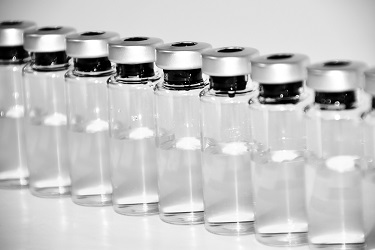Antiretroviral treatments can control HIV virus replication, and thus improve the quality of life and life expectancy of infected subjects, but they cannot cure them. Furthermore, in the vast majority of treated patients, stopping antiretroviral treatment is accompanied by a rapid rebound of the viral load, with a harmful side-effect on the immune system (decline in CD4+ T lymphocytes)
The development of a therapeutic vaccine has two purposes
1. To obtain disease remission without treatment. The objective here is to stimulate the immune response —essentially the CD8+ T lymphocyte response directed against the virus— to enable control of viral replication in the absence of antiretroviral treatment
To achieve eradication of the virus; in other words to make the virus disappear completely from the body. This is a more ambitious objective, requiring use of complex therapeutic strategies, of which the therapeutic vaccine is only one component.
How is the efficacy of therapeutic vaccines evaluated?
Besides the effect on the immune response specific to HIV, the efficacy of these vaccines can be assessed via their impact on HIV replication after antiretroviral treatments interruption (ATI) for a period not exceeding 6 months.
This treatment interruption may have a harmful effect on immunity (decline in CD4+ T lymphocytes, see above); treatment interruption must therefore be of limited duration and applied to patients for whom the potential harmful effect is negligible.
Regular monitoring of the plasma viral load and CD4+ T lymphocyte count is performed during the period of treatment interruption, with resumption of treatment in the event of a marked decline in CD4+ T lymphocytes or an excessively high increase in viral load.
What are the exclusion criteria required for being a potential candidate for participation in a trial involving ATI ? (For trials that do not involve ATI, the inclusion criteria are less strict.)
The CD4+ T lymphocyte count at the time of potential enrolment in the trial
Being pregnant
Being in the phase of the disease where antiretrviral treatement was initiated i.e primary versus chronic phase.
Specific ities according of the clinical trials
